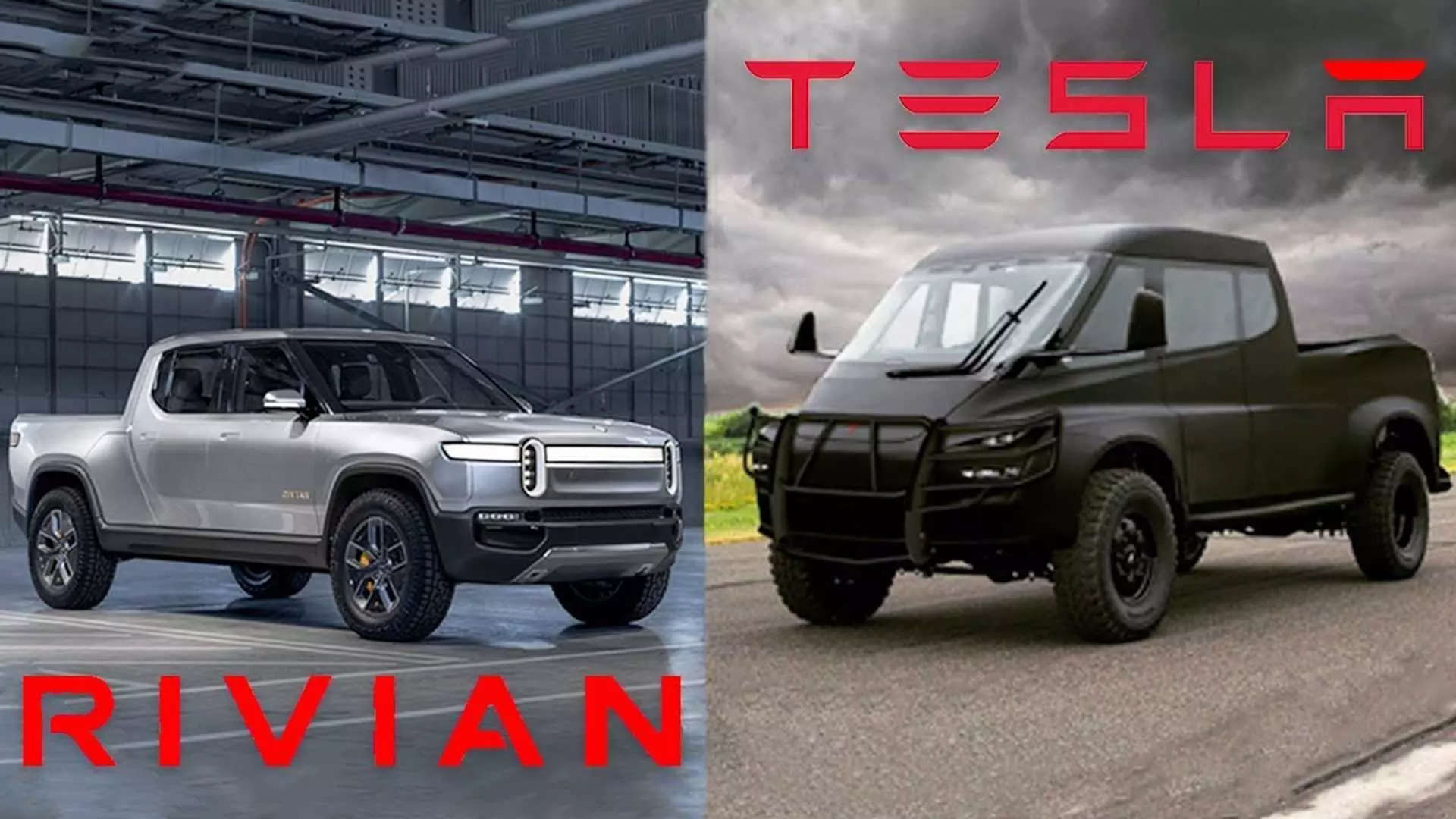Tesla and Rivian: Significant Distinction Between Self-Production and Outsourcing of Electric Motors
The London-based research firm IHS Markit examined the various tactics used by existing EV manufacturers worldwide in terms of how their electric motors are manufactured: it turns out that the majority of companies build them in-house.

Key Highlights
- Different manufacturers of "pure" battery electric vehicles, both established and newcomers, have employed a variety of different manufacturing strategies for their electric motors in order to increase profitability, compete, and separate themselves from the competition.
- Some established manufacturers, however, such as General Motors, have chosen to source their electric transmission systems from top-tier industry suppliers such as Bosch.
- Rivian is unique among start-up manufacturers in not developing its own electric motors; initially, the company outsourced all of its electric drive units, allowing it to hasten product launch.
- Nonetheless, it's worth noting that Rivian is also developing its own electric motors internally, implying that it will likely pursue an in-house strategy similar to that of rivals Tesla and Lucid in the near future.
- As a result, IHS Markit believes that the internal development model will likely dominate over the next decade.
Advertisement
Different manufacturers of "pure" battery electric vehicles, both established and newcomers, have employed a variety of different manufacturing strategies for their electric motors in order to increase profitability, compete, and separate themselves from the competition. For example, while Tesla produces the majority of the components that comprise an electric vehicle's traction system in-house, Rivian takes the opposite approach, relying on an external provider to procure motors for its vehicles. In the meantime, those brands that first relied on third parties to bring a competent product to market would eventually opt for internal manufacture.
IHS Markit, a London-based information services firm, conducted a study in which they studied OEM manufacturers' various tactics for supplying electric motors. This is a very important decision at a time when the development and production of electric cars need the product to be available as quickly as possible and when everyone needs it to stand out from the competition in terms of efficiency while still being competitive.
According to the report's conclusions, Tesla, unquestionably the world's most recognised electric car manufacturer, views electric propulsion units as a critical component of achieving maximum efficiency and also as a potential source of competitive advantage. A good illustration of this is the new Tesla Model S and Model X Plaid electric motors, which include carbon-coated rotors that are coiled on the copper rotors at high pressure, compressing them. This technology was worked on behind the scenes and then used inside the company, giving the Model S and Model X Plaid versions a lot of advantages over their competitors.
Lucid Motors is another startup that is following a similar strategy by taking the utmost care with their motors, ensuring they are as compact and efficient as possible. According to Peter Rawlinson, the company's CEO, its internal super-compact transmission technology is essentially an extremely dense system with the highest available volumetric power. This compact electric powertrain makes room for the Lucid Air's 6,600 battery cells.
Some established manufacturers, however, such as General Motors, have chosen to source their electric transmission systems from top-tier industry suppliers such as Bosch. Bringing a competitive product to market while saving money by outsourcing development processes is its goal. At the same time, the company will be able to use this time to adopt its own solutions soon.
Advertisement
The study illustrates this point by highlighting a newly formed firm that is torn between the two options. Rivian is unique among start-up manufacturers in not developing its own electric motors; initially, the company outsourced all of its electric drive units, allowing it to hasten product launch. Nonetheless, it's worth noting that Rivian is also developing its own electric motors internally, implying that it will likely pursue an in-house strategy similar to that of rivals Tesla and Lucid in the near future.
As a result, IHS Markit believes that the internal development model will likely dominate over the next decade. "Over the next decade, we predict a continuous shift toward electric drive insourcing, fueled in part by US OEMs. However, there will continue to be numerous instances where outsourcing makes sense. For instance, Rivian first outsourced its electric drive, which aided in the acceleration of its first product introduction, before building its own. BorgWarner's recent acquisition of motor supplier Santroll demonstrates that Tier 1s continue to grow significantly in this market. Automobile manufacturers may never totally outsource electric drivetrains. As established as the internal combustion engine is, the sector is 90 percent self-sustaining, with only 10% of engines sourced from outside, "IHS Markit observed.
Rivian will attempt to grow its delivery based on this initial strategy, but has already demonstrated a willingness to react to market conditions. Rivian made a significant statement regarding its electric delivery trucks that will be delivered to Amazon: the creation of a new battery pack with lithium iron phosphate (LFP) cells. Rivian is taking a big step in the right direction. Amazon's delivery vans are expected to account for a lot of Rivian's production in the near future.
Rivian does not aim to apply this technology in all units, as they will use batteries with a high nickel content (such as NCM cells) as well as batteries with lithium-iron-phosphate cells, which do not contain nickel or cobalt. Following Tesla's lead, it will also include an LFP battery in the standard versions of the Rivian R1T and R1S, which will have a lower range and a lower starting price. According to Rivian, the standard versions of its two electric models will have a range of around 260 miles (420 kilometres) and will be available exclusively with a two-motor configuration.
You may access the complete IHS Markit study via this link.
Tesla Inc. provided all the photographs.
Advertisement